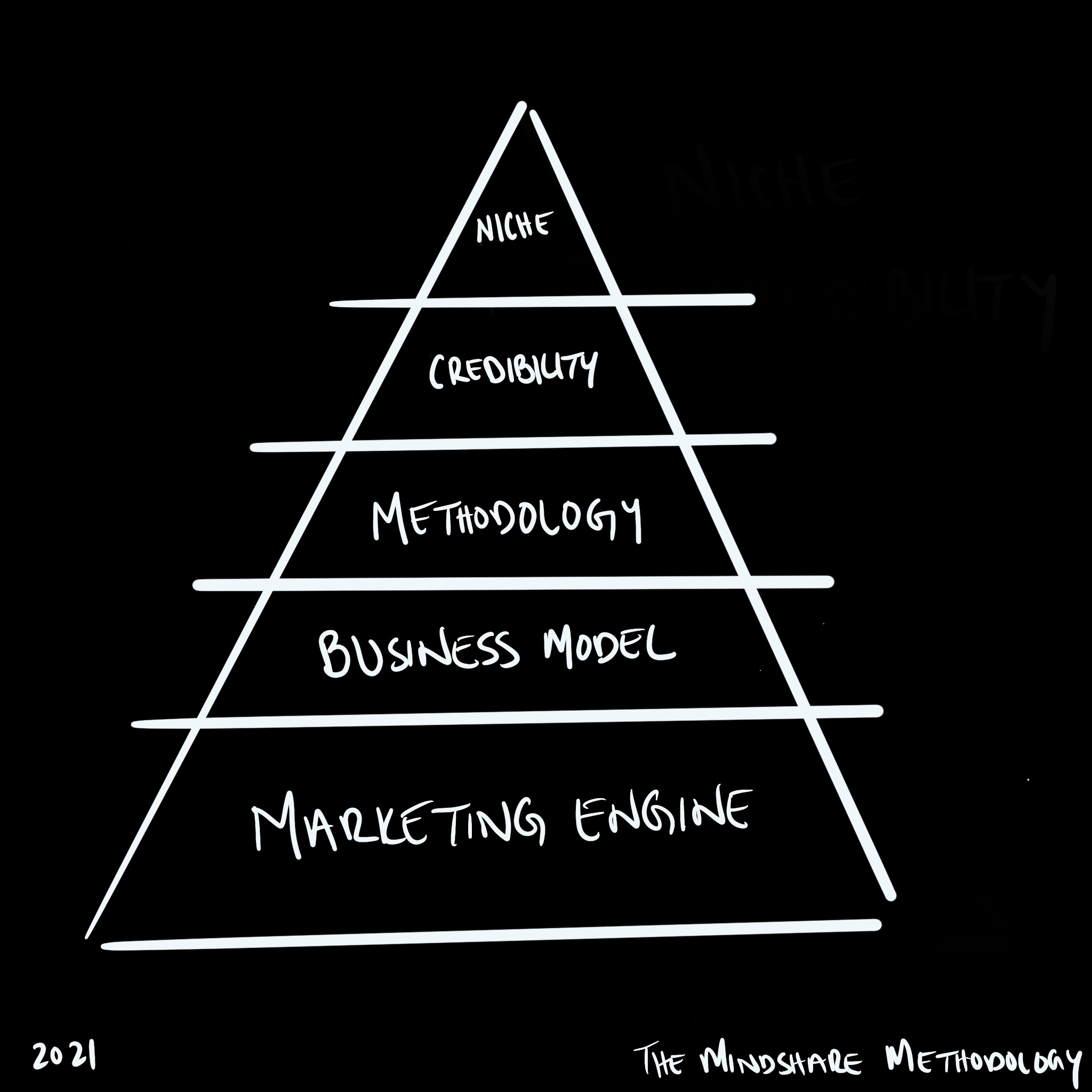The five core parts the Mindshare Framework are:
- Niche/Specialization
- Credibility
- Methodology
- Business Model
- Marketing
Credibility is not considered as much as it should be. And yet, there’s a reason I put it number two in my framework. It’s that important.

Credibility for a consultant means being seen as capable of achieving the outcomes you promise.
It means people trust you and there’s demonstrated proof of your successful track record.
And one of the best forms of proof are case studies. Case studies literally tell the stories of your success.
Case studies can be easy to put off because they feel daunting. But they don’t have to be.
Here’s how I use my standard consulting templates to make the process easier when the time comes.
1. The client onboarding questionnaire
When I start with new clients, I send a long questionnaire in Google Docs.
It not only helps me diagnose their situation and get a running start, it also allows me to see the before and after transformation when things wrap up.
The questionnaire asks things like financial performance, marketing KPIs, challenges, goals/outcomes, history, and so much more.
Having this to reference back to gives me a clear view on where we started, what we did, and the results we created without having to rely on memory or digging up old emails.
2. The KPI Document
This is one of the most important documents I use in my consulting engagements. I call it, “the place where results can’t hide”.
It tracks all of the revenue, lead and acquisition numbers, marketing expenses, and even channel-specific performance in one place.
Because of he unambiguous nature of all the numbers, it makes it super easy to see the transformation and quantify it.
3. The Call Notes Document
I take notes in Google Docs during most of my consulting calls. It’s organized by date and gives a full record of what we spoke about and when.
This is valuable to me and my clients in countless ways. But it also makes it a lot easier to check on what happened and create a case study based on all the tactical things we accomplished.
It’s essentially a storyline covering the broad strokes.
4. The Playbook
The Playbook is my Trello board with over 120 items I like to cover during my consulting engagements.
It’s essentially a checklist on steroids. It’s my “infrastructure” list. It includes all the things I like to build/consider/do during my engagements.
There are Trello cards for each idea, with processes, sub-checklists, links to free and paid training, articles, and third-party resources on the subject.
I then mark each one as “completed” as they get done, making it easy to visually see at a glance what got done along the way.
Want these templates?
These are just a few of the tools and processes I use to make my marketing consulting work—including case studies—easier.
If you want access to all these templates, content, training, and much more, consider joining Mindshare Pro.
It’s all included in your membership and you can cancel any time.
See what it’s all about: https://howtoselladvice.com/membership.